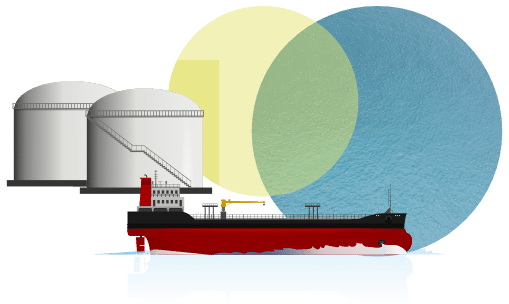مقدمھ :
This Offshore Operations & Floating Storage Unit FSU Management training program is specifically designed for professionals in the Barging & Cargo Operations Unit to provide essential knowledge and skills in managing offshore operations and the associated logistics of Floating Storage Units FSUs. As LNG operations shift toward more flexible and cost-effective solutions like FSUs, understanding their role, operations, and safety requirements is critical for personnel involved in LNG transport and cargo handling.
The course covers the design,management,and operational challenges of FSUs, as well as the coordination between offshore facilities, vessels, and terminal operations, ensuring smooth cargo management, safety compliance, and optimal operations.
Objectives
Understand the role and operational processes of Floating Storage Units (FSUs) in offshore LNG operations
Gain insights into offshore cargo handling, logistics, and transportation related to FSUs
Learn about the safety, environmental, and regulatory considerations for managing FSUs
Develop skills for coordinating offshore operations and managing FSU-related logistics
Understand the challenges and best practices for ensuring efficient and safe FSU operations
Gain knowledge about the integration of FSUs into the broader LNG supply chain and terminal operations
Organizational Impact
Optimized offshore operations: Training personnel to manage FSU operations more effectively will lead to improved offshore cargo handling, reduced delays, and increased operational efficiency
Enhanced safety and compliance: Understanding safety protocols and regulatory frameworks related to FSUs will improve the safety of offshore operations, reduce risks, and ensure compliance with local and international standards
Improved coordination: With better knowledge of FSU operations, employees will be able to improve coordination with offshore facilities, vessels, and terminal operations, leading to more streamlined processes
Cost-efficiency: Increased understanding of FSU management and offshore logistics will help minimize operational costs through better scheduling, optimization, and resource management
Target Audience:
Professionals involved in barging and cargo handling for offshore LNG operations
Cargo operations supervisors and managers working with FSUs
Offshore logistics teams and FSU operation coordinators
Safety, environmental, and risk management personnel in barging and cargo operations
Vessel operators and offshore coordination teams in the Barging & Cargo Operations Unit
Outlines:
Day 1: Introduction to Offshore Operations and Floating Storage Units FSUs
Overview of offshore LNG operations and the role of FSUs
Types of offshore facilities: FSUs vs. Floating Liquefied Natural Gas (FLNG) units
The importance of FSUs in the LNG supply chain
Design and components of Floating Storage Units (FSUs)
Integration of FSUs with LNG terminals and vessels
Day 2: FSU Operations and Logistics Management
Offshore cargo operations: loading, unloading, and transferring LNG
FSU storage systems: tanks, pressure maintenance, and temperature control
Coordination between FSUs, vessels, and LNG terminals
FSU-based logistics: scheduling, route planning, and docking procedures
Managing LNG cargo in offshore conditions
Day 3: Safety, Environmental, and Regulatory Considerations for FSUs
International and local safety standards for FSUs (IMO, SOLAS, etc.)
Risk management and hazard analysis for offshore LNG operations
Safety protocols for FSU operations: leak detection, fire, and spill prevention
Environmental impact of offshore operations and FSUs
Emergency response plans and offshore contingency planning
Day 4: FSU Maintenance, Inspection, and Operational Optimization
Regular and preventive maintenance of FSUs
Key equipment on FSUs: pumps, compressors, safety systems, and control units
Inspection and monitoring procedures for offshore operations
Optimizing FSU storage and offloading operations for efficiency
Data-driven decision making and monitoring in FSU management
Day 5: Best Practices, Challenges, and Future Trends in Offshore FSU Management
Addressing operational challenges in offshore LNG and FSU operations
Future technologies in offshore LNG: automation, digitalization, and AI integration
Sustainability and green LNG practices in offshore operations
Case studies on successful FSU operations and lessons learned
Review, Q&A, and practical applications in offshore operations and FSU management

